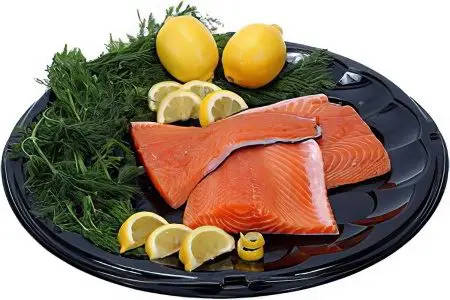Endemic goiter is a chronic disease of the thyroid gland, characterized by an increase in its size (goiter), as well as a violation of its function due to iodine deficiency.
According to statistics provided by the World Health Organization, more than 750 million people living in areas with iodine deficiency have goiter and varying degrees of functional insufficiency of the gland. 42 million of them are diagnosed with acquired mental retardation.
The most unfavorable in terms of iodine content in the environment in the Russian Federation are the Republic of Karelia, the Siberian river valleys, the Volga region and the Caucasus.
[Video] HealthCare – Endemic goiter, causes, symptoms, diagnosis, recommendations:
Radionuclide therapy
In extreme cases, with frequent relapses, failure of drug and surgical therapy, as well as in old age, radionuclide therapy is performed, which slows down cell division and inhibits the growth of the gland.
It is very important not to forget about the presence of chronic pathology in a patient with goiter. This is especially true of diseases of the digestive system, accompanied by malabsorption syndrome – malabsorption. In such cases, doses of iodine are required that are several times higher than those for patients with normal absorption of substances from the intestine.
Diet
Since in 90% of cases, endemic goiter is provoked precisely by a lack of iodine intake into the body through the digestive tract, the diet is one of the key links in the treatment of this disease.
The daily iodine requirement for a healthy adult is 140-150 micrograms, for children – 100-120 micrograms, and for infants – 50 micrograms.
The following foods rich in organic iodine should be consumed in food:
Oven-baked potatoes contain up to 60 micrograms of iodine in one tuber, which is more than a third of the daily requirement.
Prunes – one fruit contains approximately 3 micrograms of iodine.
Cranberries – 20-30 berries completely cover the daily requirement.
Seafood:
cod contains 99 micrograms of iodine in 85 grams;
shrimp – 35 micrograms per 100 grams;
lobster – 90 micrograms per 100 grams;
tuna – 17 mcg in 85 grams;
dried seaweed gives the body up to 2500% of the daily iodine requirement, because 7 grams contain 4500 mcg.
An oven-roasted turkey breast contains 35 micrograms of iodine per 100 grams.
Iodine is also found in small amounts in milk, natural yogurt, chicken eggs, bananas, strawberries and sea beans.
Exclude for the period of therapy from your diet foods that have strumogenic properties: broccoli, white cabbage, cauliflower, turnips, radishes, lettuce, corn, beans.
Memo to a patient with endemic goiter
Follow your diet. Limit the use of foods that stimulate the increase in the volume of the thyroid gland. Introduce foods rich in organic iodine as much as possible (see the Diet section).
Stick to a healthy lifestyle. Reduce the severity of physical activity, but do not remove it completely. Give preference to morning exercises, walking, yoga.
Give up bad habits, especially smoking, as tobacco smoke contains strumogens.
Take iodine supplements and thyroid hormones regularly. Preferably in the morning.
Follow all the recommendations of your doctor carefully, visit him regularly for a check-up.
Pay close attention to how your body feels. Describe in detail the moments that bother the doctor (palpitations or, conversely, bradycardia, neck pain, general weakness, etc.), and also try to identify the causes of their occurrence.
Prevention of endemic goiter

Prevention of endemic goiter is divided into mass, group and individual:
Mass preventive measures are the production of iodized salt, iodized bread and confectionery, as well as the promotion of the control of iodine levels in food on television and radio.
Group prevention carried out in risk groups: in organized groups of children’s and preschool institutions, in schools, secondary technical and higher educational institutions, as well as with pregnant and lactating women. This also includes an explanatory conversation, and, according to the doctor’s recommendations, controlled distribution of iodine preparations (Antistrumin, Iodomarin, Yodocomb).
Individual prevention consists in the use of foods rich in iodine and the intake of iodine supplements in risk groups and in endemic areas.
Mixed-fed children in the case of feeding with unadapted milk mixtures need 90 mcg of iodine daily. Pregnant women, children and adolescents – 200 mcg per day.









